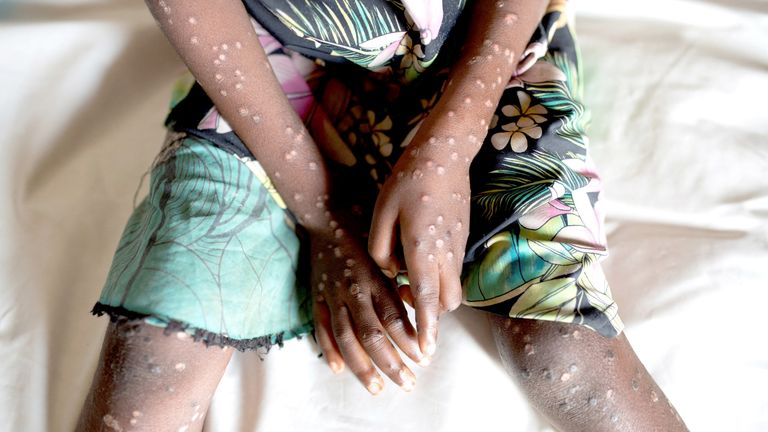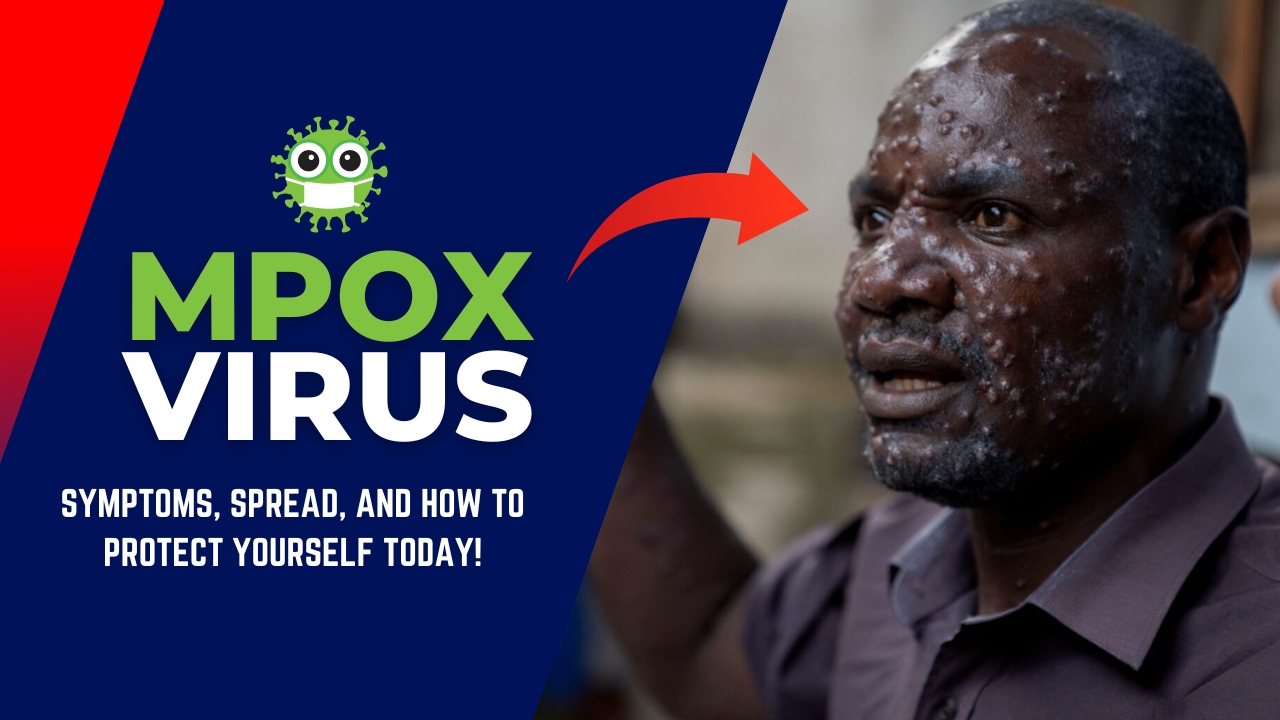MPOX Virus: A dangerous virus is rapidly spreading across the world, with cases already reported in 116 countries, including India. The World Health Organization (WHO) has issued an alert stating that if this virus is not controlled soon, it could become the next major pandemic. Just last week, on August 14th, WHO Director Dr. Tedros announced that a dangerous virus, MPOX, which had previously only affected one country in Africa, has now become a global threat.
What is MPOX Virus?

MPOX, also known as Monkeypox, is a viral zoonotic disease caused by the monkeypox virus. It was first discovered in 1958 when Danish scientists noticed symptoms similar to severe viral infections in monkeys imported from Singapore for polio vaccine testing. Upon investigation, they found a new type of pox virus, which was later named “Monkeypox virus” because it was first observed in monkeys.
A Brief History of MPOX Virus
The first human victim of the MPOX virus was a nine-year-old boy from the Democratic Republic of the Congo (DRC) in 1970. The virus continued to incubate and mutate within the boy’s tribal community, which was in close contact with infected monkeys. Since then, two major strains of the MPOX virus have been identified:
- Clade I (Congo Basin Clade): This strain is more severe and concentrated in the DRC.
- Clade II (West African Clade): This strain is milder but has spread to more countries due to its less severe symptoms, making it harder to detect.
Current Situation and Spread
A new, more powerful strain of the MPOX virus has emerged recently. It began spreading from the Democratic Republic of the Congo and has now reached 12 other African countries, as well as parts of Europe, the Middle East, and even as far as the Philippines. This new strain is estimated to be at least seven times more deadly than COVID-19.
How Does MPOX Spread?
MPOX can spread through direct contact with bodily fluids, lesions on the skin, or internal mucosal surfaces, such as in the mouth or throat, respiratory droplets, and contaminated materials like bedding or clothing. The virus can survive on surfaces like clothes, tables, and glass for over 15 days in cool, dark, and low humidity environments.
Symptoms of MPOX

The symptoms of MPOX are divided into three stages:
- Incubation Period: The virus enters the body and begins to adapt and multiply. This period usually lasts 1-2 weeks, during which no symptoms are visible.
- Prodromal Stage: Early symptoms like fever, fatigue, weakness, headache, swollen lymph nodes, and cough start to appear. Swollen lymph nodes are a distinctive symptom not commonly seen in other viral infections.
- Rash Stage: The virus becomes fully active in the body and starts affecting epithelial cells, leading to skin lesions. The lesions progress from flat, dry macules to raised papules, fluid-filled vesicles, and painful pustules. This progression happens within 1-2 weeks, after which the person becomes highly contagious.
Is India safe from MPOX?
India is not immune to the threat of MPOX. Two years ago, a less serious Clade II-infected individual returned to India from the UAE, leading to 25 infections and one death. Given the high volume of travel between India and African nations, as well as the UAE, there is a significant risk of the virus spreading further.
What Should Infected Individuals Do?
If someone shows symptoms of MPOX, WHO guidelines recommend the following:
- Maintain personal hygiene and regularly sanitize objects frequently touched by others.
- Avoid close contact with infected individuals, including family members and animals, to prevent further spread.
- If infected, isolate immediately and avoid social contact until all rashes and lesions have dried and new healthy skin has developed.
- Even after recovery, use condoms for up to 12 weeks to ensure your partner’s safety.
Could MPOX Become the Next Global Pandemic?
Given the rapid spread of the new strain of MPOX, the virus might reach a tipping point similar to what happened with COVID-19 in March 2020. This could lead to a global pandemic if it is not contained quickly. The virus is mutating and adapting, increasing the risk of it becoming even more dangerous and potentially population-specific in the future.
Conclusion
The MPOX virus presents a significant threat to global health. With its ability to mutate, spread rapidly, and potentially become more lethal, it is crucial for governments and health organizations worldwide to take immediate and comprehensive measures to control its spread. Public awareness, vaccination, and adherence to strict hygiene protocols are essential to prevent MPOX from becoming the next global pandemic.
FAQs on MPOX virus
What is the MPOX virus, and how is it different from other viruses?
The MPOX virus is a specific strain of virus that causes a unique set of symptoms. Unlike other common viruses, it primarily affects the skin and respiratory system, and its mode of transmission includes close contact with an infected person or surfaces they have touched.
What are the common symptoms of the MPOX virus?
Common symptoms of the MPOX virus include fever, cough, sore throat, skin rashes, and muscle aches. In some cases, individuals may experience severe respiratory issues or gastrointestinal problems. It’s important to consult a healthcare professional if you exhibit any of these symptoms.
How does the MPOX virus spread among people?
The MPOX virus spreads mainly through respiratory droplets when an infected person coughs or sneezes. It can also spread through direct contact with contaminated surfaces or through close physical contact with an infected individual, such as hugging or touching.
What steps can I take to protect myself from the MPOX virus?
To protect yourself from the MPOX virus, practice good hygiene by washing your hands frequently with soap and water, wearing a mask in crowded places, avoiding close contact with people showing symptoms, and disinfecting commonly touched surfaces regularly.
Is there a vaccine or treatment available for the MPOX virus?
Currently, there is no specific vaccine or antiviral treatment for the MPOX virus. Treatment focuses on relieving symptoms and supporting the immune system. It is advisable to seek medical attention if symptoms worsen or if there are any complications.

